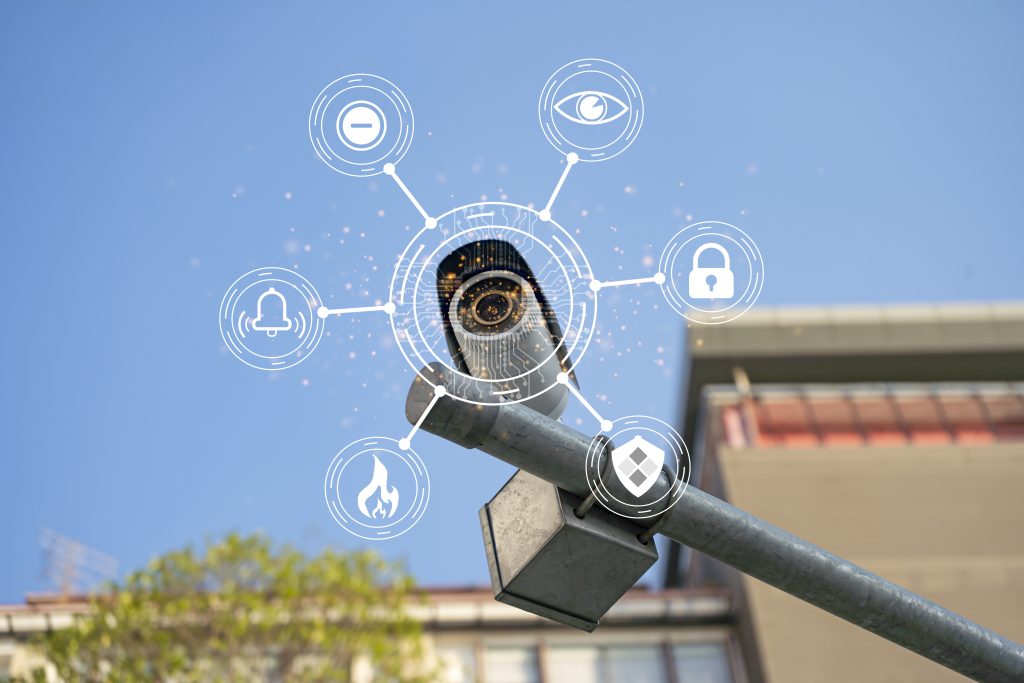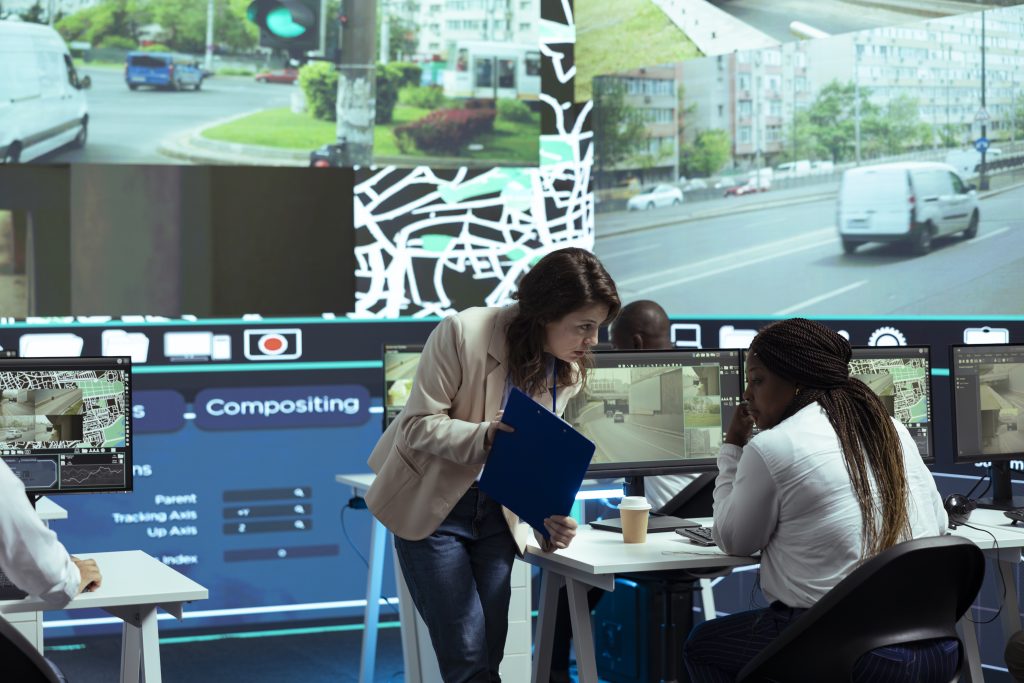Wired Camera Data Protection: A Safe Choice for Security
There’s something reassuring about a wired security camera, isn’t there? It’s tethered, solid, dependable—like it’s got nothing to hide. Unlike wireless systems, which rely on signals that can be intercepted, wired cameras are harder to hack. They keep data where it belongs: safe.
For homes or businesses, this means fewer worries about someone snooping where they shouldn’t. Plus, they don’t depend on Wi-Fi, so no dropped connections. Curious about how these systems work or why they’re considered a smarter choice? Stick around. There’s more to wired cameras than meets the eye, and it might just change how you think about security.
Key Takeaway
- Wired cameras connect directly to recording devices for strong security.
- They are safer from hacking and Wi-Fi issues than wireless systems.
- Wired systems provide high-quality video for better surveillance.
Understanding Wired Camera Data Protection
Credits : George Langabeer
Shielded Residence wired cameras excel at keeping your video data secure. By using cables to connect directly to recording devices, we ensure your footage remains private and uncompromised. These cables can be coaxial or Ethernet. Ethernet cables are pretty handy because they can send both power and data through just one cable. This is called Power over Ethernet (PoE). It keeps the video feed strong and clear. (1)
Unlike wireless cameras, wired ones don’t have to worry about losing signal. Things like walls or other electronics don’t mess with them as much. That direct connection makes the video steady and reliable.
Wired cameras also make it tougher for anyone to mess with the data. Since they use physical cables, it’s harder for someone to hack into the system from far away. The cables act like a shield, keeping the video feed private. This setup makes wired cameras a safer pick when it comes to protecting important video footage.
How Wired Security Cameras Work
At Shielded Residence, our wired security cameras seamlessly integrate with recorders such as DVRs or NVRs, providing a reliable and high-quality connection to keep your property safe. They use physical cables to make this connection. Traditional cameras usually use coaxial cables, while newer IP cameras use Ethernet cables.
These cables help the camera send video to the recorder without any hiccups. That means no blurry pictures or missing footage.When the camera records video, it sends it straight to the recorder in real-time. This lets people see what’s happening as it happens. Cameras can be placed in lots of spots—like front doors, driveways, or big open spaces.
This makes it easy to cover all the important areas of a home or business. If someone wants to check a specific spot, they can watch the live feed or look at saved footage. This setup helps keep things secure and gives people peace of mind knowing they can check on their property anytime.
Security Advantages of Wired Cameras

- Harder to Hack:
Wired cameras are much harder to hack. Since they use cables, someone would have to be close enough to mess with them physically. This makes it really tough for anyone to sneak into the system. Wireless cameras, on the other hand, can be hacked from far away if someone intercepts the signal. Wired systems keep things safer by using a closed circuit, so only people with access to the cables can see the video. - No Wi-Fi Problems:
Wired cameras don’t need Wi-Fi to work. That’s a big deal because Wi-Fi can be weak or even hacked. With cables, there’s no need to worry about bad passwords or outdated software. Plus, you won’t lose your video feed just because the Wi-Fi signal drops. This makes wired cameras a solid choice for anyone who wants a dependable security system. - Extra Protection with Encryption:
Many wired systems use encryption to keep the data safe. This means even if someone tries to steal the video, they won’t be able to read it without special keys. It’s like locking the footage in a safe. Encryption adds another layer of security, so users can feel confident that their video recordings stay private.(2)
Additional Benefits of Wired Systems
- Clearer Video:
With Shielded Residence wired cameras, you can count on sharper, clearer video quality. Our strong cable connections ensure you capture every detail without interruptions. This is super helpful for watching over important spots. Clear footage makes it easier to see faces, license plates, or other important things if something happens. - Steady and Reliable:
Wired systems don’t deal with signal drops like wireless ones do. The direct connection means the video feed stays steady and doesn’t cut out. This reliability is really important for security. People can trust their cameras to keep working and keep watching, no matter what. - Great for Big Setups:
Wired systems can handle a lot of cameras at once, which is great for big homes or businesses. They can cover more ground without losing video quality. And if someone needs more cameras later, they can just add them to the system. This makes it easy to keep an eye on every corner of a property.
Considerations for Implementation

Wired security systems can be a bit tricky to set up. They need cables, and that means some planning is required. If the building is already finished, it might even mean drilling holes to run those cables.
That’s not always easy. It can take time, effort, and sometimes even hiring a professional to get it done right. But a lot of people find it’s worth the hassle because wired systems are known for being super secure and giving clear, high-quality video.
Before jumping into installation, it’s smart to think about what’s needed and take a good look at the property. Every space is different, and the setup might depend on how the building is laid out.
Another thing to think about is the type of cables being used. Not all cables work the same. For example, some places might need twisted pair cables, while others might do better with fiber optic ones. Picking the right kind of cable can make a big difference in how well the system works and how reliable it is over time.
By planning ahead and choosing the right materials, people can get the most out of their wired security cameras. It’s a little extra work upfront, but it can mean better protection and peace of mind in the long run.
Conclusion
At Shielded Residence, we believe wired security cameras are the cornerstone of a dependable home security system. By combining high-quality video, robust data protection, and steady reliability, our solutions deliver peace of mind for homeowners. With our expertise in professional installation and tailored systems, we ensure your property stays secure for the long haul.
They’re harder to hack, deliver clear video, and stay reliable without worrying about weak signals. Sure, setting them up takes more effort—planning, maybe drilling, and picking the right cables—but the payoff is worth it.
Once installed, they provide dependable surveillance that’s tough to beat. With a proper setup, these cameras can keep an eye on what’s important, offering users a sense of security that lasts. It’s a little more work upfront, but the long-term benefits make it a smart choice.
FAQ
What are the key differences between wired DVR and NVR systems for wired surveillance cameras?
Wired DVR and NVR systems are both used for wired surveillance cameras, but they process and store data differently. DVR systems typically work with analog cameras and use coaxial cables, while NVR systems are designed for IP cameras, relying on Ethernet cables. Both options offer continuous recording, but your choice may depend on existing infrastructure and required features like 4K resolution or motion detection.
How do wired security camera systems with 4TB hard drives ensure reliable local storage?
Wired security camera systems with 4TB hard drives provide ample local storage for recorded footage, allowing users to avoid cloud storage fees. This setup ensures secure data protection and accessibility without relying on internet connectivity. Systems like NVR or DVR are compatible with such storage solutions, supporting continuous or motion-based recording.
Why choose wired 4K resolution cameras for outdoor security systems?
Wired 4K resolution cameras deliver high-definition footage with exceptional image quality, making them ideal for outdoor security systems. With features like motion detection and color night vision, these cameras capture fine details, even in low-light conditions. They also transmit data reliably via hardwired connections, ensuring uninterrupted monitoring.
How do wired IP security cameras with advanced features enhance video security?
Wired IP security cameras offer advanced features like remote access, motion detection, and high-resolution video quality. Their Ethernet cable connection supports stable data transmission, making them an excellent choice for surveillance systems. Many IP systems also integrate with mobile apps, providing flexibility and real-time monitoring.
What are the benefits of using a wired security camera system with night vision capabilities?
Wired security camera systems with night vision ensure 24/7 surveillance, capturing clear footage even in complete darkness. These systems often include advanced features like color night vision and motion detection. Wired connections eliminate signal interference, providing stable performance for indoor and outdoor security needs.
References
- https://solink.com/resources/glossary/wired-camera/
- https://ajax.systems/products/turretcam/